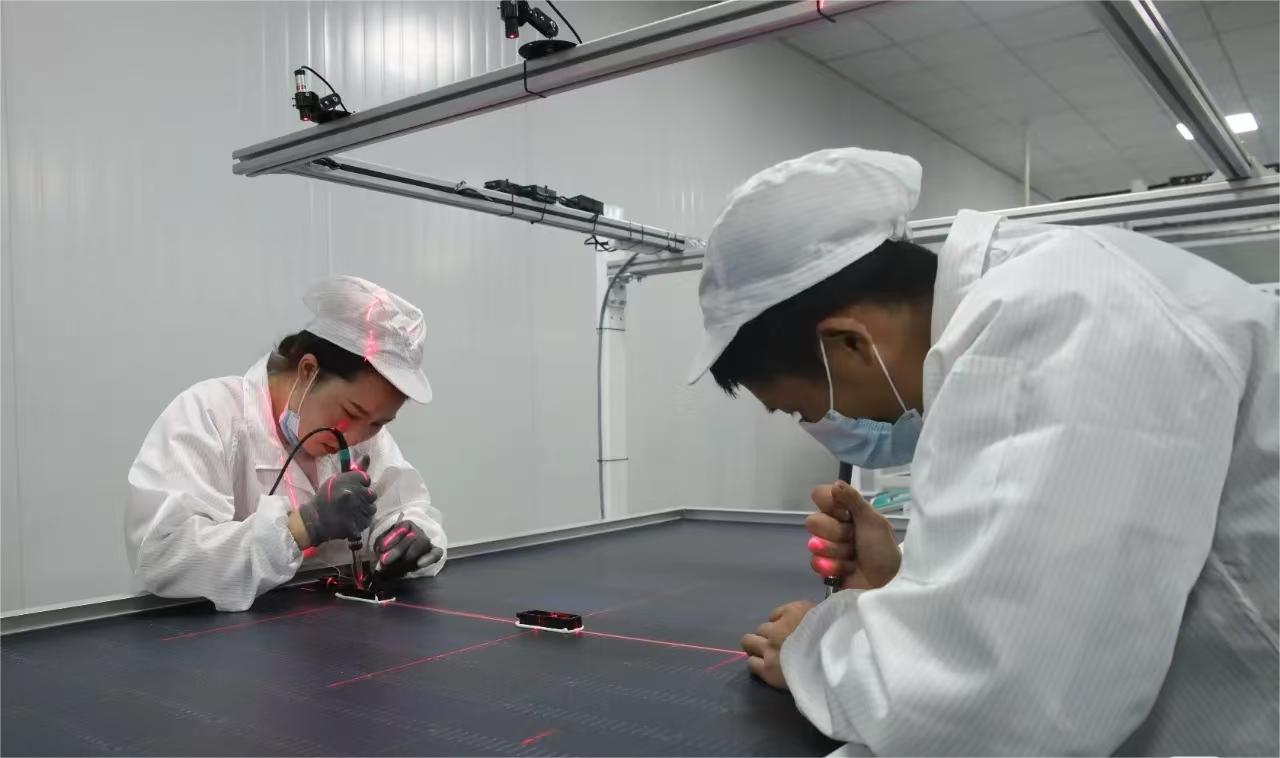In photovoltaic power generation systems, the performance stability and reliability of components are key factors to ensure long-term benefits. Among the many influencing factors, the "PID effect" has become one of the technical problems that plague the service life and power generation efficiency of solar panels. In practical applications, if the anti-PID performance of solar panels is poor, it will directly lead to a decrease in power generation efficiency and a longer return on investment cycle.
This article will start with the principle of the PID effect, and deeply analyze the technical design, test standards, field performance and industry comparison of Jinko Tiger solar panelsin terms of anti-PID, to help buyers and end customers fully understand its advantages.
1. What is the PID effect? Why should we pay attention?
PID, the full name is Potential Induced Degradation, which means "potential induced degradation". It refers to the electron migration caused by the voltage difference between components and between components and ground during the operation of the system, which leads to the decline in the performance of the cell.
The main hazards of the PID effect include:
The power output of the cell drops sharply
The surface glass of the component fogs or leaks electricity
The power generation efficiency of the overall system is reduced by more than 10%
The service life is greatly shortened, increasing the operation and maintenance cost
Especially in high temperature, high humidity and high voltage environments, the PID problem is more prominent. PV power stations around the world, such as those located in the Middle East, Southeast Asia, and South America, will directly affect the project's return on investment (IRR) if the components have insufficient anti-PID performance.
Therefore, for large-scale power station projects and rooftop photovoltaic systems, it is particularly important to choose panels with excellent anti-PID capabilities.

2. Anti-PID design highlights of Jinko Tiger solar panels
The Jinko Tiger series includes multiple versions such as Tiger, Tiger Pro, and Tiger Neo, all of which use cutting-edge technology optimization to deal with the PID effect.
2.1 Use high-quality packaging materials
The EVA (ethylene-vinyl acetate copolymer) packaging film used in the Tiger series components has excellent anti-aging and barrier properties, effectively reducing ion migration. In addition, the backplane material adopts a three-layer composite structure to improve the overall insulation performance and block high-voltage induced paths.
2.2 Cell surface passivation technology (PERC / TOPCon)
Tiger Neo uses advanced N-type TOPCon cell technology, which has lower leakage current and better charge recombination control capabilities, making the components naturally have stronger anti-PID capabilities and stronger structural stability than traditional P-type components.
2.3 Optimize component grounding and potential distribution
In the design of the Tiger series, Jinko has systematically optimized the potential distribution of the components to minimize the voltage difference between the component frame and the cell, reducing the risk of PID induction from the source.
2.4 Pass the PID strict test of third-party authoritative organizations
Tiger components have passed the PID tests of multiple authoritative organizations such as TÜV Rheinland, UL, and CGC, simulating 1000V or even 1500V high-voltage operating environments, and tested for more than 96 hours at high temperature and high humidity (85℃ / 85% RH), with power attenuation less than 0.5%, far higher than the industry standard.
3. Actual performance of Jinko Tiger's anti-PID performance
In multiple field projects and long-term monitoring data around the world, Jinko Tiger solar panels have shown excellent anti-PID stability:
3.1 Project verification in the Middle East
In a large ground power station in Dubai (1500V system), Tiger Pro components have been running continuously for more than 3 years in a high-temperature and dry environment. Regular infrared detection and IV testing show that the average power attenuation of the components is less than 1.5%, with no obvious signs of PID.
3.2 Stable operation in high humidity environment in Southeast Asia
In an industrial rooftop photovoltaic project in Malaysia, Tiger Neo modules have been in operation for more than 24 months. Although the local humidity exceeds 85% all year round, there is no glass fogging, edge blackening or leakage, showing an excellent moisture-proof design.
3.3 Long-term tracking project of European power stations
A special PID comparison experiment site in Germany shows that among Tiger and other brand modules operating in the same environment, Tiger still maintains 99.2% of the initial power after PID testing, which is much higher than the 95.6% of a certain brand.
4. The benefits of choosing modules with strong anti-PID ability:
Stronger long-term power stability and more controllable power generation income
Reduce operation and maintenance disputes during the warranty period and reduce after-sales service costs
Strong adaptability, suitable for more complex climate regions
Improve the reliability of power station investment and improve bank financing rating
When purchasing photovoltaic modules, we should not only focus on the price per watt, but also comprehensively evaluate its technical parameters and long-term performance. For projects requiring high reliability, it is recommended to give priority to Jinko Tiger series products that have passed the strict anti-PID test.
Anti-PID performance is one of the key indicators for measuring the quality of photovoltaic modules. Jinko Tiger solar panels have successfully overcome the PID problem with their advanced material technology, structural optimization design and N-type cell technology, becoming one of the first choices for high-standard photovoltaic projects around the world.
Whether in deserts, rainforests, humid heat or high-voltage application scenarios, the Tiger series can operate stably and provide customers with long-term and reliable clean energy solutions.
If you are choosing solar panels for your project, you may want to focus on the Jinko Tiger series. Its excellent anti-PID performance may be the long-term value guarantee you are looking for.
If you need to purchase or understand more technical information or cooperative agency policies of Tiger components, please contact us to obtain product white papers and project case materials.
www.janewenergy.com
JA TECH Co.,ltd.
